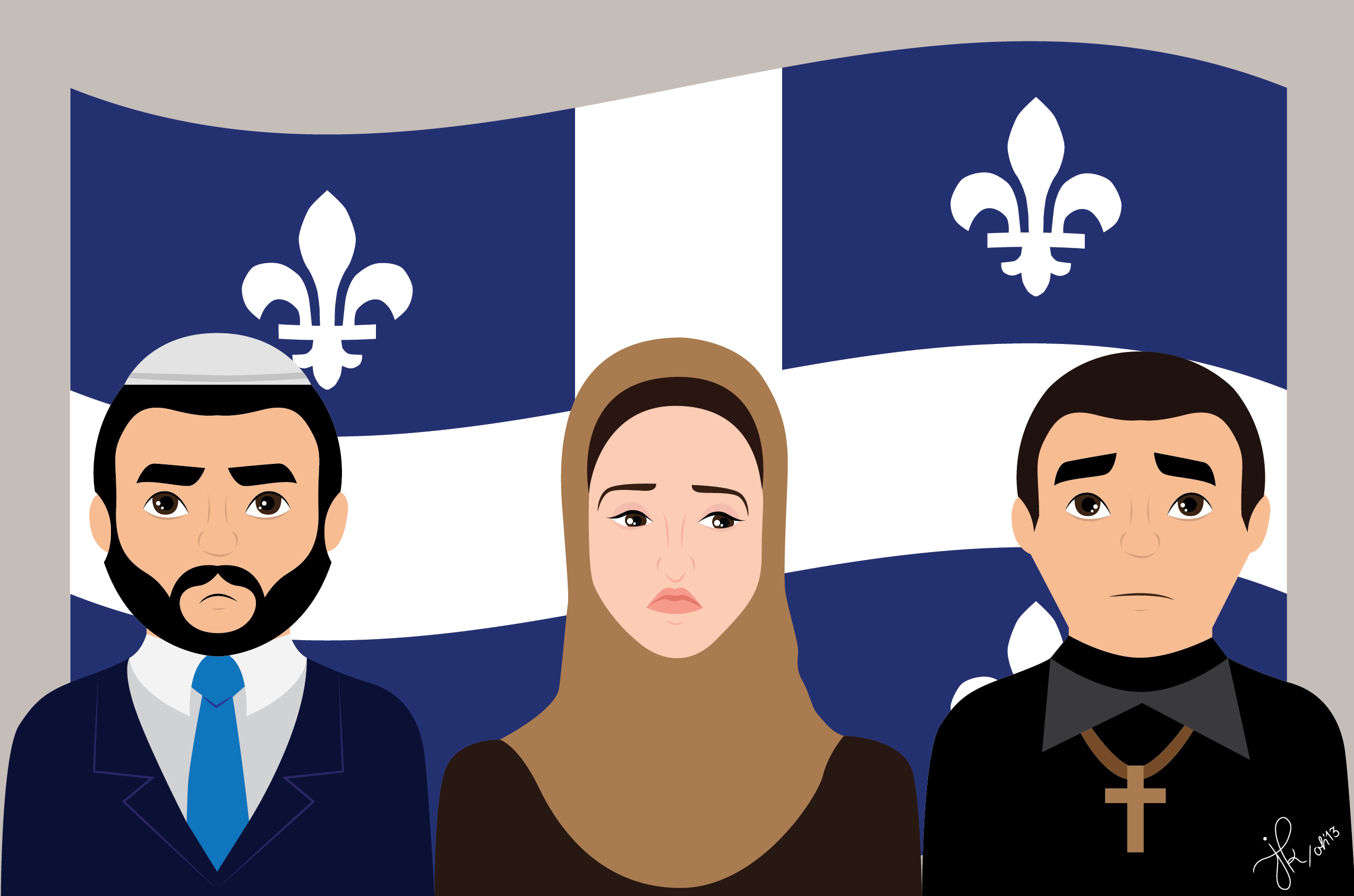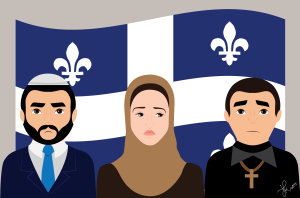After more than a year in power, the Parti Québécois government must be commended on their flawless performance in the art of dividing a society. They began the year with language laws, which culminated in the infamous “pastagate.” Now they have moved on to segregating religious minorities.
The PQ’s proposed Charter of Quebec Values is a set of guidelines describing which religious symbols would be considered appropriate for a public servants to wear to work. Public servants would include all city workers, policemen, judges, prosecutors, correctional agents, hospital, school, daycare and municipal workers.
“When you’re serving the state it will have to be clear: The state is neutral […] the people who serve you don’t want to influence or embarrass you by openly and clearly expressing their convictions,” said Quebec Premier Pauline Marois in a press release.
Notably, hijabs, niqabs, turbans, ostentatious crucifixes and kippahs would be considered overt and obvious symbols of religious belief and, as such, would be forbidden. Only small religious symbols would be allowed, yet there are no size limits proposed. Thus, the line between acceptable and conspicuous is both arbitrary and subjective. They have also not established how they would enforce their proposed charter.
Since its official release, the contents of the proposed charter provoked outrage from both the political sphere and the general public. One much discussed aspect of the bill was its inherent discrepancies.
The bill will give hospitals, universities, CÉGÉPs and municipalities the option to opt out of the proposed charter for a five-year period, during which employees would be able to wear religious symbols on the job. Daycare workers, however, will not have that privilege.
Dr. Emmanuelle Richez is a political science professor at Concordia University who specializes in Quebec and Canadian politics. According to her, these five-year exemptions are only a temporary option.
‘‘[Quebec] Minister [of Democratic Institutions] Bernard Drainville does not want these exemptions to be continuously renewed. He wants to eventually reach the PQ’s vision of secularism in time,’’ said Richez.
Even more striking is the fact that elected officials in the National Assembly would be exempt from the proposed charter policies altogether and will thus never have to worry about hiding their religious symbols.
‘‘If we’re really trying to achieve the religious neutrality of the state, what’s more representative of the state than an elected official?’’ said Côte-des-Neiges–Notre-Dame-de-Grâce mayor Lionel Perez in an article published in the Gazette. Perez is a practicing Jew who wears a kippah.
The crucifix will also remain in the National Assembly and so will the cross on Mount-Royal, despite both being symbols of Christianity. Drainville says they are now part of Quebec’s religious heritage and will not be removed, according to La Presse.
Other discrepancies include Quebec’s continuous subsidizing of religious private schools and keeping the opening prayer at municipal council meetings.
‘‘The charter is essentially trying to impose the values of the majority of Quebecers on the minority. There is a religious double-standard here evident by the crucifix remaining in the National Assembly,” said Richez. “The majority of the people want to force the minority to make sacrifices the former is itself not ready to do.’’
In essence, the PQ is once again using their divide-and-conquer strategy as a means to gain the upper hand in the next provincial election.
‘‘The Parti Québécois is continuing its policies of division by literally fabricating a crisis to change the subject [from Quebec’s economic situation],’’ provincial Liberal leader Phillippe Couillard said at a caucus meeting last month.
It’s a good thing the PQ renamed the bill from the “charter of secularism” to the “Charter of Quebec Values” because this proves it is anything but secular.





